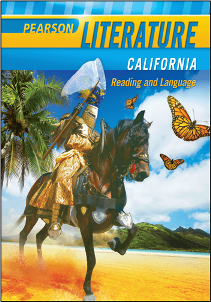Here’s a recommended reading list for boys taken from the Family Education Network http://school.familyeducation.com/reading/fiction/37734.html Parents and teachers should review the books to make sure they are age appropriate.Night Driving, by John Coy
As father and son drive into the night, they watch the sunset, talk
about baseball, sing cowboy songs, and even change a flat tire before
pitching camp at daybreak.
The Stories Julian Tells, by Ann CameronJulian, that quick fibber and wishful thinker, is great at telling stories. He
can make people – especially his younger brother, Huey – believe just
about anything. But some stories can get you into a pack of trouble,
and that’s exactly where Julian and Huey find themselves all too often.
The Stinky Cheese Man and Other Fairly Stupid Tales, by Jon ScieszkaWonderfully quirky, this book breathes new life into traditional children’s
stories. In these irreverent variations on well-known themes, the ugly
duckling grows up to be an ugly duck, and the princess who kisses the
frog wins only a mouthful of amphibian slime!
The Stupids Step Out, by Harry Allard
The Stupid family and their dog Kitty have a fun-filled day doing
ridiculous things.
The Adventures of Captain Underpants, by Dav PilkeyWhen George and Harold hypnotize their principal into thinking he’s
the superhero Captain Underpants, he leads them to the lair of the
nefarious Dr. Diaper, where they must defeat his evil robot henchmen.
Holes, by Louis SacharAs further evidence of his family’s bad fortune (which started with
a curse on a distant relative), Stanley Yelnats is sent to a hellish
correctional camp in the Texas desert where he finds his first real friend,
a treasure, and a new sense of himself.
Harry Potter and the Sorcerer’s Stone, by J. K. Rowling
Rescued from the outrageous neglect of his aunt and uncle, a young
boy with a great destiny proves his worth while attending Hogwarts
School for Wizards and Witches.
My Side of the Mountain, by Jean Craighead GeorgeA young boy relates his adventures during the year he spends
living alone in the Catskill Mountains, including his struggle for
survival, his dependence on nature, his animal friends, and his ultimate
realization that he needs human companionship.
There’s a Boy in the Girls’ Bathroom, by Louis Sachar
An unmanageable, but lovable, 11-year-old misfit learns to believe in
himself when he gets to know the new school counselor, who is a sort
of misfit, too.
Encyclopedia Brown, by Donald J. Sobol
Whenever ten-year-old Leroy “Encyclopedia” Brown’s father, the Chief
of Police of Idaville, had a difficult case, Encyclopedia always managed
to solve it at the dinner table. So, he decided to open his own detective
agency.
James and the Giant Peach, by Roald Dahl
For young James Henry Trotter, life with the exceedingly nasty Aunt
Sponge and Aunt Spiker is pure misery. James dreams of a better life,
but he’s totally unprepared for the wild adventures ahead when he
drops the magic crystals he receives from a strange old man. Before
long, James is off on a weird, wonderful journey inside a giant peach
with a bizarre group of companions!
Hatchet, by Gary PaulsenAfter a plane crash, 13-year-old Brian spends 54 days in the wilderness,
learning to survive with only the aid of a hatchet given him by his
mother – and learning to survive his parents’ divorce.
Crash, by Jerry SpinelliSeventh-grader John “Crash” Coogan has
always been comfortable with his tough,
aggressive behavior, until his relationship
with an unusual Quaker boy and his
grandfather’s stroke make him consider
the meaning of friendship and the
importance of family.
 What CHALLENGES are faced in teaching language arts to the modern student?
What CHALLENGES are faced in teaching language arts to the modern student?

